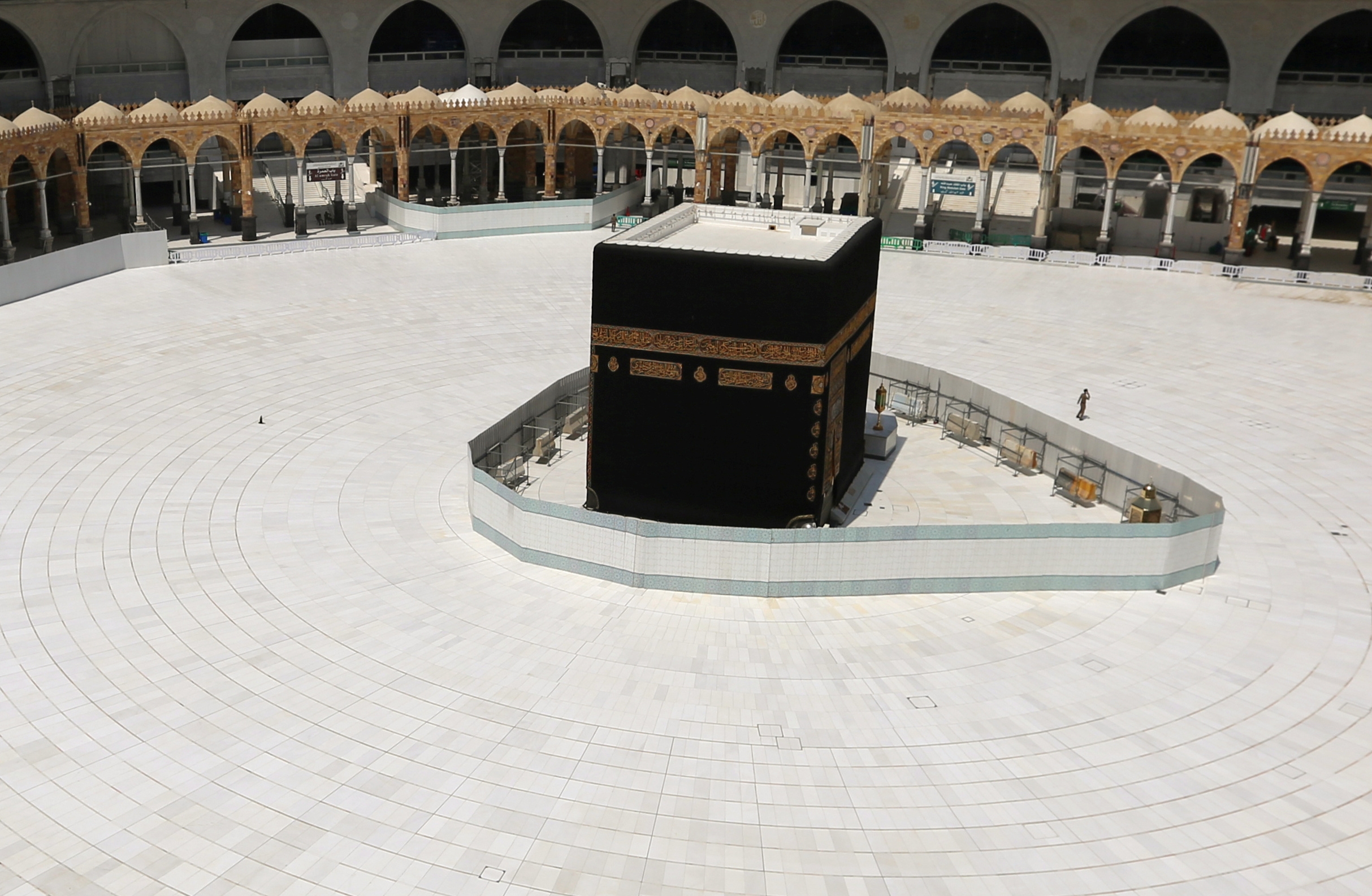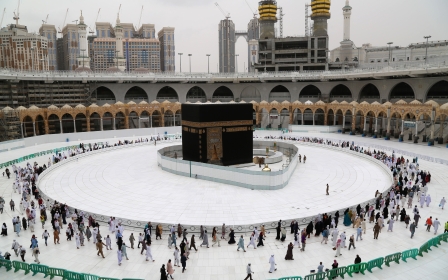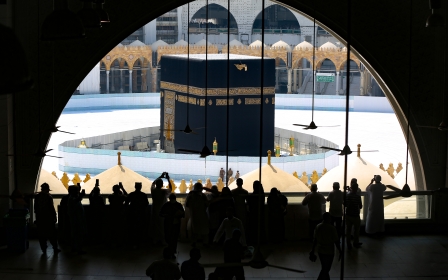Coronavirus: Saudi Arabia asks Muslims to put Hajj plans on hold

Saudi Arabia wants Muslims to wait until there is more clarity about the coronavirus pandemic before planning to attend the annual Hajj pilgrimage, the minister for Hajj and Umrah said on state TV on Tuesday.
Some 2.5 million pilgrims from around the world usually flock to the holiest sites of Islam in Mecca and Medina for the week-long ritual, which is a once-in-a-lifetime duty for every able-bodied Muslim and a major source of income for the kingdom.
Historical cancellations of Hajj
+ Show - HideSince the Kingdom of Saudi Arabia's founding in 1932, the annual Hajj pilgrimage has never missed a year, with hundreds of thousands heading to Mecca during the month of Dhul-Hijjah (Month of the Pilgrimage).
Historically, however, the pilgrimage expected of each Muslim in their lifetime has been cancelled around 40 times, mostly due to disease, conflicts and banditry.
Middle East Eye takes a look at a few of the most dramatic cancellations since the first Hajj of 629.
865: Massacre on Arafat Mountain
During his conflict with the Abbasid Caliphate based in Baghdad, Ismail bin Yousef, known as Al-Safak, launched an attack on the holy Arafat Mountain overlooking Mecca in 865, massacring pilgrims there. The raid forced Hajj to be cancelled.
930: Qarmatian attack
In 930, Abu Taher al-Janabi, the chief of the Qarmatians heterodox sect based in Bahrain, launched an attack on the holy city of Mecca.
Historical accounts say the Qarmatians killed 30,000 pilgrims in Mecca and dumped their bodies in the sacred Zamzam well. They also looted the Grand Mosque and stole the Black Stone from its Kaaba and took it to Bahrain.
The Hajj was suspended for a decade until the Black Stone was returned to Mecca.
The Qarmatians were an Ismaili Shia sect who believed in an egalitarian society and considered pilgrimage as a pagan ritual.
1831: Plague
Not only conflicts and massacres have cancelled Hajj. A plague from India hit Mecca in 1831 and killed three-quarters of the pilgrims there, who had endured weeks of travel through dangerous and barren lands to perform Hajj.
The largest annual gathering of Muslims is scheduled to begin in late July, but the coronavirus outbreak has raised questions about whether it can, or should, go ahead given the risk of spreading the disease further in large gatherings.
Saudi Arabia has already suspended the smaller, year-round Umrah pilgrimage until further notice, halted all international passenger flights indefinitely and last week blocked entry and exit to several cities, including Mecca and Medina.
The kingdom has reported 10 deaths among 1,563 cases of coronavirus, which has infected some 800,000 people globally and killed more than 38,000.
Pilgrimage is big business for Saudi Arabia and the backbone of plans to expand visitor numbers under Crown Prince Mohammed bin Salman’s economic reform agenda.
Cancelling the Hajj would be unprecedented in modern times, but curbing attendance from high-risk areas has happened before, including in recent years during the Ebola outbreak.
Middle East Eye delivers independent and unrivalled coverage and analysis of the Middle East, North Africa and beyond. To learn more about republishing this content and the associated fees, please fill out this form. More about MEE can be found here.





